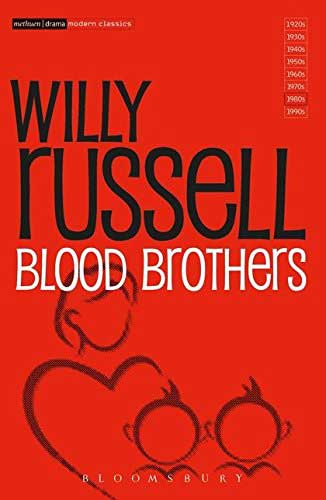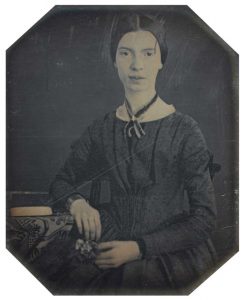Year 7
Saffiya Abdul has written a fantastic poem to describe the image below!

The dandelions were my sun,
They shone around me
Making me feel happy.
Skipping across on my tippy toes in glee,
A smile slithered on my face
As I chased the leaves flying away.
Year 8
Amirah Azazy has written a remarkable diary entry from the point of view of Mrs Johnstone in “Blood Brothers.”
Imagine you are Mrs Johnstone. Write a diary entry explaining what has happened to you and how it has made you feel.
Monday 8th January 1980
Dear diary,
 Today was such an awful day! Oh I’ll just tell ya’ about it. It started when I was told about the twins. When that happened me mind just filled up with so many thoughts about whether they would be able to survive an’ would I be able to look after ‘em? Probably why that witch Mrs. Lyons persuaded me to let her keep MY child. By this point, I felt like such a terrible mother. Who in this world lets their son be taken away from ‘em? Then the witch said if the twins ever find out they were twins, they would both die! That made me realise how terrible a decision this was. The mastermind herself made me swear on the holy bible, I can’t believe I’m never gonna’ get my son back.
Today was such an awful day! Oh I’ll just tell ya’ about it. It started when I was told about the twins. When that happened me mind just filled up with so many thoughts about whether they would be able to survive an’ would I be able to look after ‘em? Probably why that witch Mrs. Lyons persuaded me to let her keep MY child. By this point, I felt like such a terrible mother. Who in this world lets their son be taken away from ‘em? Then the witch said if the twins ever find out they were twins, they would both die! That made me realise how terrible a decision this was. The mastermind herself made me swear on the holy bible, I can’t believe I’m never gonna’ get my son back.
Then today of course when I came in to do me work, me own son was in the arms of Mrs. Lyons. That felt like a dagger straight through me chest but obviously, I couldn’t say that. Then what did I do? I made the massive mistake of acting like the boy’s mother right in front of her and Mr. Lyons! I hate the fact that I’m an absolute stranger to me own son. When Mrs. Lyons started to get frustrated about me holding the baby, I went off to do my work an’ what did I hear? I heard Mrs. Lyons persuading her husband to fire me. At this point, I knew I messed up. Even after she promised me tha’ I would see my son every single day.
When I came to terms with the fact that I had no say in this and there was not much I could do, I noticed the woman herself walking strangely and confidently towards me with a massive £50-pound note. £50?! I was so taken aback by the large amount of money, I didn’t even realise she was trying to hand it to me…
To tell ya’ the truth, I didn’t want the money, I didn’t want to be fired. I just wanted to see my son. The worst part is I actually had my hopes up to have some sort o’ kind of relationship with the boy. Why didn’t I just think and register that Mrs. Lyons would not keep her word? Leaving that house felt like a part of my life disappearing before me. So now I go to bed with 8, not 9 children, no job, no way to keep myself an’ my family stable but an extra £50 for supposedly “sellin’ me son”. I’m ashamed of myself.
Let’s just hope tomorrow is a better day!
Goodnight.
Year 9
Chelsea Sahampour has engaged brilliantly with the play she is studying this term.
How does Arthur Miller present Eddie Carbone in “A View from the Bridge?”
In the play “A View from the Bridge,” Miller presents Eddie Carbone as overprotective. This becomes clear when he exclaimed to his niece Catherine, “I don’t like the looks they’re giving you in the candy store.” The pronoun “they’re” reinforces that it is out of Catherine’s control, yet Eddie (unfairly) still holds Catherine responsible for other people’s actions. In addition, the noun “candy store” connotes children, sweetness and innocence. This could be a clear representation of how Eddie portrays Catherine explaining why he is eager to protect her purity and innocence. On the other hand, Eddie’s possessiveness towards Catherine could be due to his jealousy, since throughout the play, it becomes clear he has romantic feelings towards her. The phrase “I don’t like” shows it is only Eddie who has a negative opinion towards the situation. This clearly supports the idea that Eddie is envious towards the fact that other men give Catherine attention. An audience may feel surprised by Eddie’s reaction and jealousy, since Catherine is his niece and Eddie’s feelings towards her are very abnormal. Furthermore, Catherine is clearly not a child as later on in the performance she is offered a job, so an audience may be confused as to why Eddie is reluctant to understand she isn’t a child anymore. Furthermore, this links to the 1950s patriarchal society and how the male figure would be dominant and women were expected to obey and rely on men.
Miller also presents Eddie Carbone as very conventional as shown in the quote, “what kind of job?” His short responses towards Catherine’s exciting news clearly portray his vexation and anger. It could also be a clear link back to how Eddie sees Catherine as a child and incapable of having a job possibly because she is a woman and he expects her to stay in the domestic realm at home. A modern-day audience would be astonished by the stereotypes and discriminatory gender roles and expectations. Eddie’s traditional attitudes are derived from 1950s expectations of women, who are expected to stay home, cook, clean and look after their children.
Year 10
Jess Hill has written an exceptional response to the poem “As Imperceptibly as Grief.”
How does Dickinson (pictured) present the theme of time in “As Imperceptibly as Grief?”
 Although As Imperceptibly as Grief gives the impression it is about sadness, the poem contradicts this idea when it ends with a peaceful and relaxed tone. Time is an important theme in the poem as Dickinson believes that grief and loss can overpower happiness and that it would take time for happiness to appear again. Dickinson lived a very simple life in her father’s house but she was an isolated poet that suffered with agoraphobia. Her life was generally confined to her home and the countryside after her brother’s betrayal. Many of Dickinson’s friends passed away during her lifetime which could have influenced her poetry. The title ‘As Imperceptibly as Grief’ suggests that grief is hardly noticeable on a person but it can change them and their mind.
Although As Imperceptibly as Grief gives the impression it is about sadness, the poem contradicts this idea when it ends with a peaceful and relaxed tone. Time is an important theme in the poem as Dickinson believes that grief and loss can overpower happiness and that it would take time for happiness to appear again. Dickinson lived a very simple life in her father’s house but she was an isolated poet that suffered with agoraphobia. Her life was generally confined to her home and the countryside after her brother’s betrayal. Many of Dickinson’s friends passed away during her lifetime which could have influenced her poetry. The title ‘As Imperceptibly as Grief’ suggests that grief is hardly noticeable on a person but it can change them and their mind.
Time is presented in As Imperceptibly as Grief when Dickinson saw that ‘the summer lapsed away’ highlighting that happiness can easily slip away due to the unsatisfactory nature of her life. The verb ‘lapsed’ suggests that she is so consumed in grief and sadness that the happiness and light ‘Summer’ gave to her has disappeared. In addition, when a ‘quietness distilled’ it could evoke that the quietness has purified her mind as she can now think clearly without any disturbances or sadness. The vibrancy of summer is juxtaposed with the quietness of twilight which suggests that darkness overshadows happiness. Readers would feel sympathetic towards Dickinson as her life was very miserable and isolated and she went through a lot of grief. This links to context as her brother had an affair with a new arrival in her town which happened before her father became a rival to her brother. This affair affected the whole family intensely and Emily Dickinson had to take a stand against her brother.
Furthermore, time is presented when ‘the Dusk drew earlier’ further reinforcing the idea that happiness can be ephemeral if you are surrounded by darkness. The adverb ‘earlier’ displays that her happiness and her life is fleeting due to the fact that all around her is sadness and loss which affected her greatly. Readers would understand that all the loss and betrayal in her life has now managed to engulf her happiness so that her hope of a better life is temporary. This links to the context as Dickinson needed permission from her father to write poetry as she lived in a patriarchal society but poetry brought her happiness and he denied her of that for a while.
Finally, time is presented in As Imperceptibly as Grief when Dickinson uses the dashes to create a hesitant and disjointed pace to the poem which reflects her own fragile and fractured state of mind. The dashes signify that her life is broken and isolated due to the short lived happiness she experienced. Readers would feel saddened by this as she is very lonely which can be seen in this poem therefore creating a melancholic tone to show her grief. This links to context as Dickinson had a very confined life due to her agoraphobia causing her to be very isolated and alone. Many people thought she was strange as she rarely went outside.
Overall, As Imperceptibly as Grief is about how loss and sadness can overpower happiness if you don’t deal with it properly. Personally, I think that the poem is very enlightening as she had agoraphobia and I think that the poem shows how lonely she was and how time is a very key part of finding happiness when you have experienced lots of sadness. I think the writer’s intentions are to show that you should value your happiness as it is easily lost and overpowered by darkness.
Year 11
Here is a fantastic poetry comparison written by Lucy McKenzie.
Compare the presentation of power in Ozymandias and Hawk Roosting.
Although both poems discuss how nature has the power to overthrow man, Shelley makes the sonnet harsher to show the contrast of power by using an iambic pentameter whereas the poet of Hawk Roosting repeats “hooked” to emphasise how violent the hawk can be. This links to how Hughes understood how violent and harsh life was as his father was a war veteran.
At the beginning of Ozymandias, Shelley instantly presents power with the title “Ozymandias.” This word broken down is “ozy” and “mandias” which links to the Greek word “mandate” which has the definition of “to rule”. The title also links to the Greek ruler Rameses II who was a harsh and cruel leader that used slaves to build his statues. This primarily puts the power in man but as the readers learn, this power is only temporary. This contrasts from Hawk Roosting as Hughes instantly presents power in nature. Hughes uses the rhyming couplet “feet” and “eat” in the first stanza to instantly portray how precise and perfect the Hawk’s killing technique is. The verb “eat” suggests that the hawk doesn’t see this as a villainous act instead he sees this as a way of life as he has to kill to ultimately survive and grow to become even more powerful in its habitat. This could link to how Hughes experienced the raw and harsh realities during his time in nature.
In the middle of both poems, we see Hughes staying locked in the analysis of the power of nature/ the hawk yet Shelley reinforces that no one’s power is eternal except the power of nature. Shelley uses the contrast of the two words “survive” and “lifeless” in the same line to remind the readers that Ozymandias is dead and has no more power. This links to the next line where Shelley uses the phrase “the hand that mocked” to reinforce the idea that the power that Rameses II once had is no more and his leadership is now mocked and laughed at yet nature’s power is serious and everlasting. This imagery of nature’s power being perpetual is also shown in Hawk Roosting as we receive the opinion of the Hawk that he cannot be overpowered. He uses the monosyllabic language in the quote “I kill where I please because it’s all mine” to reinforce that this power surrounding this hawk and nature cannot be overthrown. Perhaps it could also link to how dictatorship contains arrogance, power and violence. This could link to the end of the line where Hughes places a full stop , “.” , to emphasise how what the hawk says is final and how nobody else can take that power away from him. Perhaps the line could also link to how the lives of its prey just ends once killed.
Moving towards the end of both poems, we see that overall the power obtained by nature is too well built to be overthrown by man as man relies on nature to survive. At the end of Ozymandias, Shelley uses an alliteration “boundless and bare” to suggest that man’s power has emptiness and lacks depth compared to nature’s power which makes the readers understand how much strength nature has. Hughes presents this power when he uses the phrase, “allotment of death” which on the surface could mean that the hawk uses death to emphasise its power but it could also refer to how the hawk grows from death as it becomes more healthy and inviolable but the satisfaction and pride it receives from having killed builds up his arrogance and ultimately makes nature and the hawk pompous.
Please note images are subject to copyright protection of the relevant companies or individuals.




